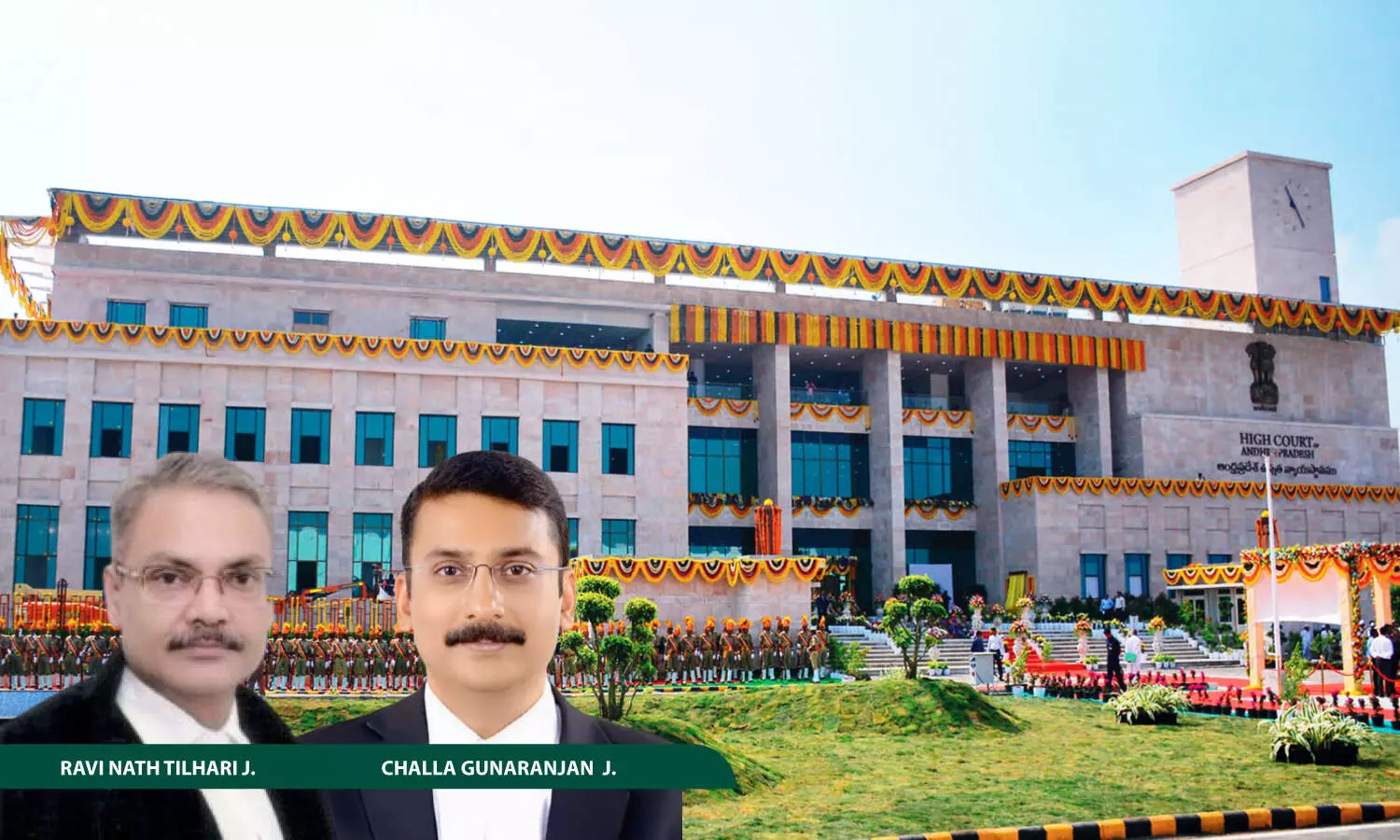
“Meritorious Candidates Cannot Be Made To Suffer For The Fault Of The State”: Andhra Pradesh High Court Grants Notional Seniority To DSC-2001 Selectees Denied Timely Appointment
 |
|The Court said that the inter se merit of candidates selected in DSC-2001 must be protected under Rule 33(b), even if appointments were delayed due to administrative error.
The Andhra Pradesh High Court has upheld an Administrative Tribunal’s direction granting notional seniority to selectees under DSC-2001 whose appointments were delayed due to a misinterpretation of the Presidential Order. The Court ruled that meritorious candidates, though appointed later in 2002, were entitled to seniority from January 2002 under Rule 33(b) of the Andhra Pradesh State and Subordinate Service Rules, 1996.
A Division Bench of Justice Ravi Nath Tilhari and Justice Challa Gunaranjan observed, “…as per Rule 33 (b) of the Service Rules 1996, the respondents/applicants were entitled to be given the seniority in the order of merit or preference as per the merit list of appointees, all being selectees of the same DSC-2001, irrespective of the date of the applicants’ appointment i.e., though given appointment in October 2002, for no fault on their part, but because of irregularity committed in selection which was corrected under the Order of the Tribunal. They were entitled for the seniority being given with effect from January, 2002, at par their counter parts.”
Government Pleader K. Ramalingeswara Rao appeared for the Petitioners, while Advocate P. Veerabhadra Reddy represented the Respondents.
Brief Facts
The Respondents were selected for appointment as School Assistants under DSC-2001. Despite their selection, they were not appointed in January 2002 with others in the same selection batch due to irregularities stemming from misapplication of the Presidential Order in the reservation roster. Following the decision, the Government issued a G.O. recasting the selection list, pursuant to which the Respondents were appointed only in October 2002.
When a seniority list was prepared in 2012, the Respondents were placed below those with lesser merit who had joined in January 2002. Challenging this, they approached the Andhra Pradesh Administrative Tribunal, seeking notional seniority with effect from January 2002. The Tribunal allowed the plea and directed the authorities to revise the seniority list under Rule 33(b) of the 1996 Rules.
The State Government approached the High Court challenging the order of the Tribunal.
Reasoning of the Court
The Court noted that the entire selection process arose from DSC-2001, and the Respondents were part of the same select list as those appointed earlier, and the delay in appointment was not due to any fault or laches on the part of the Respondents but due to administrative errors.
The Court rejected the State’s argument that the candidates could not claim retrospective seniority, stating, “The Government of Andhra Pradesh had committed a mistake in interpreting the Presidential Order and wrongly rejected the claim of the respondents. The respondents were selected candidates but not appointed due to no fault of theirs. Once that mistake was corrected pursuant to the directions of the Tribunal, they were also appointed on the basis of the same DSC-2001 selection.”
The Bench stressed the importance of Rule 33(b) of the 1996 Rules, particularly the proviso, which mandates that inter se merit as per the selection list must be maintained, and notional dates of commencement of probation be assigned accordingly.
The Court noted, “Rule 33 (b) of the Service Rules 1996 thus provides that the appointing authority may at any time of passing an order appointing two or more persons simultaneously to a service, fix either for the purpose of satisfying the rule of reservation of appointments or for any other reason the order of preference among them, and where such order has been fixed, seniority shall be determined in accordance with it.”
The Court explained, “Therefore, as per Rule 33 (b) of the Service Rules 1996, the respondents/applicants were entitled to be given the seniority in the order of merit or preference as per the merit list of appointees, all being selectees of the same DSC-2001, irrespective of the date of the applicants’ appointment i.e., though given appointment in October 2002, for no fault on their part, because of irregularity committed in selection which was corrected under the Order of the Tribunal. They were entitled for the seniority being given with effect from January, 2002, at par their counter parts.”
The Court referred to the decision of the Supreme Court in Surendra Narain Singh v. State of Bihar (19918), which held that candidates who were selected against earlier vacancies but who could not be appointed along with others of the same batch due to certain technical difficulties, when appointed subsequently, would have to be placed above those who were appointed against subsequent vacancies.
The Court rejected the Petitioner’s plea of laches, noting that the grievance of the Respondents arose only when the Government prepared the final seniority list in 2012 without accounting for Rule 33(b), and the Respondents had promptly approached the Tribunal.
The Court held, “Tribunal has taken care of that aspect and has directed the petitioners to intimate the provisional seniority list to all the concerned and receive the objections, if any, and then finalize the seniority list, which consonance with the principles of natural justice, as also the principles for finalizing the seniority list.”
Accordingly, the Court dismissed the petition and upheld the Tribunal’s direction to revise the seniority list, assigning notional seniority to the Respondents from January 2002 under Rule 33(b).
Cause Title: Government of Andhra Pradesh & Ors. v. K. Satyanarayana & Ors. (Writ Petition No. 4962 of 2014)